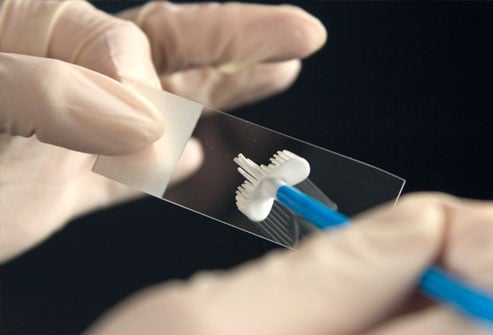Women should endeavour to go for regular pap smear, Uchenna Iroka, a medical practitioner, has advised.
A pap smear is a screening procedure to check for the presence of precancerous or cancerous cells on the cervix, the opening of the uterus.
Pap test is an effective way to detect signs of cervical cancer.
Iroka, from the department of accident and emergency unit, Minna General Hospital, said pap smear will ultimately lead to the discovery of cancerous cells if present.
He told the News Agency of Nigeria (NAN) that cervical cancer if detected early in women, can be successfully treated.
The doctor noted that cancer detection is most often late in developing countries like Nigeria.
“If the pap-smear test is negative, the person should be vaccinated and if the test is positive, it is an indication that the person is likely to develop cancer in 20 to 30 years time,” he said.
“At that point, the person can commence treatment to prevent it from developing. Most cervical cancer is squamous in 90 per cent and adenocarcinoma in about 5 per cent.
“Treating cancer depends on the stage it is discovered. Most people in developing countries unlike in the developed countries are ignorant, that is why the disease is discovered late.”
He said treatment modalities for cancer, include surgery, radiotherapy and chemotherapy while the three modalities could be combined.
The medical practitioner advised young ladies to get vaccinated whether they were sexually active or not.
Iroka also advised Nigerians, especially women, to go for regular cancer screening, stressing that regular screening helps to detect the disease at early stage and reduces number of deaths.
He called on religious and traditional leaders to encourage women in their domain to go for regular breast and cervical screening, adding that such facilities were available in government hospitals.
Based on new research, several scientists are calling for a simple screening for human papillomavirus (HPV) as a replacement for the pap smear.
For now, the pap smear is still the most reliable means of detecting cervical cancer in women around the world.
Copyright 2025 TheCable. All rights reserved. This material, and other digital content on this website, may not be reproduced, published, broadcast, rewritten or redistributed in whole or in part without prior express written permission from TheCable.
Follow us on twitter @Thecablestyle

